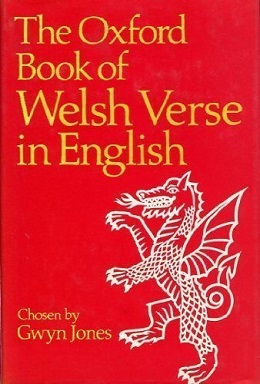Bibliography
- J. E. Caerwyn Williams & Peredur I. Lynch (ed.), Gwaith Meilyr Brydydd a'i Ddisgynyddion, Cyfres Beirdd y Tywysogion I (Cardiff, 1994). ISBN 0-7083-1187-3
Meilyr Brydydd ap Mabon (fl. 1100–1137) is the earliest of the Welsh Poets of the Princes or Y Gogynfeirdd (The Less Early Poets) whose work has survived.
Meilyr was the court poet of Gruffudd ap Cynan (ca. 1055–1137), king of Gwynedd. He composed a notable awdl farwnad (elegy) on the death of his patron and a marwysgafn on his own approaching end, noted for its intensity and depth of feeling. He had a son named Gwalchmai ap Meilyr.

Gruffudd ap Cynan, sometimes written as Gruffydd ap Cynan, was King of Gwynedd from 1081 until his death in 1137. In the course of a long and eventful life, he became a key figure in Welsh resistance to Norman rule.

The Oxford Book of Welsh Verse in English is a 1977 poetry anthology edited by the author and academic Gwyn Jones. It covers both Welsh language poetry in English translation and poetry written in English by Welsh poets.
Medieval Welsh literature is the literature written in the Welsh language during the Middle Ages. This includes material starting from the 5th century AD, when Welsh was in the process of becoming distinct from Common Brittonic, and continuing to the works of the 16th century.
Robert Geraint Gruffydd FLSW FBA was a scholar of Welsh language and literature. From 1970 to 1979, he was Professor of Welsh Language and Literature at the University of Wales, Aberystwyth, and was made Emeritus Professor in 1993.
Rhisiart ap Rhys was a Welsh-language poet from the cwmwd of Tir Iarll, Glamorgan.
Rhys Brydydd was a Welsh language poet from Tir Iarll, Glamorgan, south Wales.
Tir Iarll, is the traditional name of an area of Glamorgan, Wales, which has long had a particular resonance in Welsh culture.
Elidir Sais was a Medieval Welsh language court poet from Anglesey His sobriquet Sais ("English") suggests he was conversant in the English language, something so unusual at the time that it earned him his nickname. It may indicate he had been forced to spend some year in exile in England.
Gwalchmai ap Meilyr was a Welsh-language court poet, connected with Trewalchmai in Anglesey. He was one of the earliest of the Gogynfeirdd or Beirdd y Tywysogion. He composed poems in praise of Owain Gwynedd, king of Gwynedd, and his brothers. He was the son of another poet, Meilyr Brydydd, and father of the poets Meilyr ap Gwalchmai and Einion ap Gwalchmai. He shares his name with Gwalchmei ap Gwyar, a figure from Welsh legend described as the nephew of Arthur and known in English as Gawain.
Meilyr ap Gwalchmai was the son of the Welsh poet Gwalchmai ap Meilyr and brother of another poet, Einion ap Gwalchmai. His surviving work is religious in nature.
The Welsh court poet Einion ap Gwalchmai was the son of the poet Gwalchmai ap Meilyr and brother of the poet Meilyr ap Gwalchmai. He lived in Gwynedd. Some lines of a praise poem to Llywelyn ab Iorwerth, Prince of Gwynedd, have survived, together with three impressive religious awdlau (odes).
Phylip Brydydd was a Welsh language court poet.
Iorwerth Beli was a poet who wrote in the Middle Welsh language. Very little is known of his life.
Llywarch ap Llywelyn was an important medieval Welsh poet. He is also known by his bardic name, "Prydydd y Moch".

Tudur Penllyn was a Welsh language poet during the time of the Beirdd yr Uchelwyr, the professional poets of the late Middle Ages.
Arofan was a 7th Century Welsh language poet.
Culture and Society in Gwynedd during the High Middle Ages refers to a period in the History of Wales spanning the 11th, 12th, and 13th centuries. The High Middle Ages were preceded by the Early Middle Ages and followed by the Late Middle Ages. Gwynedd is located in the north of Wales.

Peredur Ionor Lynch, FLSW is a Welsh academic who serves as professor of Welsh & Medieval Literature in the School of Welsh and Celtic Studies at Bangor University.
Nationality words link to articles with information on the nation's poetry or literature.